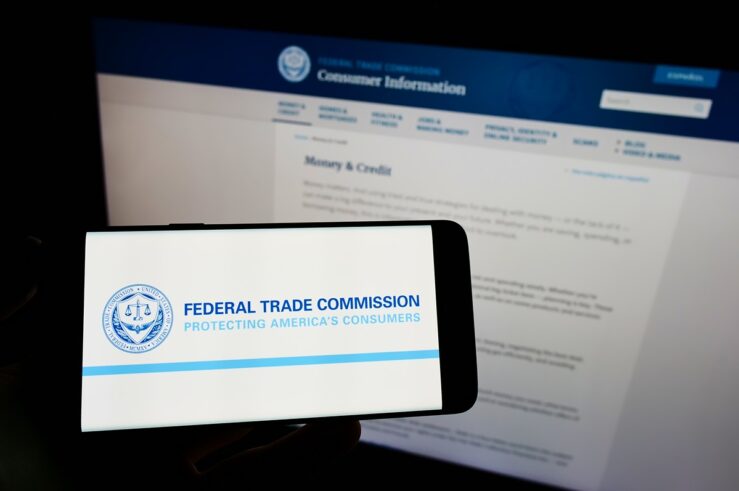Showing results for: “digital markets act”
What Do We Do with Presumptions in Antitrust?
Winter was coming, as it does. We knew the agencies were going to issue new merger guidelines, and then they did. On Dec. 18, 2023, the Federal Trade Commission (FTC) and U.S. Justice Department (DOJ) jointly issued merger guidelines, supplanting 2023’s draft guidelines, the 2010 Horizontal Merger Guidelines, and the 2020 (partially withdrawn) Vertical Merger ... What Do We Do with Presumptions in Antitrust?
Enforcing the DMA is Easier Said Than Done: Evidence From the Commission’s Draft Template for DMA Compliance Reports
The European Commission early last month published its draft template for DMA-compliance reports. This is the document that gatekeepers will periodically need to fill out, and which subsequently will be used to determine whether they comply with the European Union’s Digital Markets Act (DMA). The draft template is a missed opportunity to clarify some of ... Enforcing the DMA is Easier Said Than Done: Evidence From the Commission’s Draft Template for DMA Compliance Reports
Innovation as a shield and a club in the agribusiness mergers
People need to eat. All else equal, the more food that can be produced from an acre of land, the better off they’ll be. Of course, people want to pay as little as possible for their food to boot. At heart, the antitrust analysis of the pending agribusiness mergers requires a simple assessment of their ... Innovation as a shield and a club in the agribusiness mergers
Draft Merger Guidelines Do Not ‘Return Antitrust to a Sound Economic and Legal Foundation’ – A Response to Professor Kwoka
In a recently published article in ProMarket, John Kwoka of Northeastern University (who “worked on the draft Merger Guidelines while serving at the Federal Trade Commission as chief economist to the chair in 2022”) asserts that the U.S. Justice Department (DOJ) and Federal Trade Commission’s (FTC) draft merger guidelines aim to improve “deficient merger enforcement” ... Draft Merger Guidelines Do Not ‘Return Antitrust to a Sound Economic and Legal Foundation’ – A Response to Professor Kwoka
Antitrust Policy and National Security Interests
U.S. antitrust policy seeks to promote vigorous marketplace competition in order to enhance consumer welfare. For more than four decades, mainstream antitrust enforcers have taken their cue from the U.S. Supreme Court’s statement in Reiter v. Sonotone (1979) that antitrust is “a consumer welfare prescription.” Recent suggestions (see here and here) by new Biden administration ... Antitrust Policy and National Security Interests
The most embarrassing thing Joe Stiglitz ever wrote?
In case you haven’t already, I recommend taking a gander at today’s New York Time Book Review. In it, there is a review of Naomi Klein’s new book, The Shock Doctrine, by Nobel-winning economist, Joe Stiglitz. It’s an abomination (I’m sure the book is an abomination, too, but I’m referring to the book review). If ... The most embarrassing thing Joe Stiglitz ever wrote?
Antitrust at the Agencies Roundup: Supply Chains, Noncompetes, and Greedflation
The big news from the agencies may be the lawsuit filed today by the U.S. Justice Department (DOJ) and 16 states against Apple alleging monopoly maintenance in violation of Section 2 of the Sherman Act. It’s an 86-page complaint and it’s just out. I’ll write more about it next week. Two quick observations: First, the ... Antitrust at the Agencies Roundup: Supply Chains, Noncompetes, and Greedflation
New Paper Reveals “Stealth” Consolidation But Competitive Effects Remain Hidden
Thomas Wollmann has a new paper — “Stealth Consolidation: Evidence from an Amendment to the Hart-Scott-Rodino Act” — in American Economic Review: Insights this month. Greg Ip included this research in an article for the WSJ in which he claims that “competition has declined and corporate concentration risen through acquisitions often too small to draw ... New Paper Reveals “Stealth” Consolidation But Competitive Effects Remain Hidden
A Consumer-Welfare-Centric Reform Agenda for the Federal Trade Commission
As we approach a presidential election year, it is time to begin developing a comprehensive reform agenda for the Federal Trade Commission (FTC). In that spirit, this post proposes 12 reforms that could be implemented by new leadership, either through unilateral action by a new chair or (in some cases) majority votes of the commission. ... A Consumer-Welfare-Centric Reform Agenda for the Federal Trade Commission
Wyndham Decision Highlights FTC Role in Cybersecurity: Legal and Policy Considerations
On August 24, the Third Circuit issued its much anticipated decision in FTC v. Wyndham Worldwide Corp., holding that the U.S. Federal Trade Commission (FTC) has authority to challenge cybersecurity practices under its statutory “unfairness” authority. This case brings into focus both legal questions regarding the scope of the FTC’s cybersecurity authority and policy questions ... Wyndham Decision Highlights FTC Role in Cybersecurity: Legal and Policy Considerations
Debunking the "pro-business" rationale for Section 5 enforcement
Repeating claims he made in his statement in Intel, Chairman Leibowitz in a recent interview in the Wall Street Journal has this to say about stepped-up Section 5 enforcement at the FTC: The courts have pared back plaintiffs’ rights in antitrust cases. They’re concerned about what they believe to be the toxic combination of class ... Debunking the "pro-business" rationale for Section 5 enforcement
A Law & Economics Perspective on Ruth Bader Ginsburg
With the passing of Justice Ruth Bader Ginsburg, many have already noted her impact on the law as an advocate for gender equality and women’s rights, her importance as a role model for women, and her civility. Indeed, a key piece of her legacy is that she was a jurist in the classic sense of ... A Law & Economics Perspective on Ruth Bader Ginsburg










